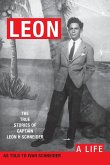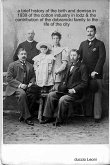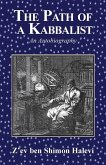Alexander Granach was born in 1893 in Werbowitz, a small village on the easternmost rim of the Austro-Hungarian Empire, and would become one of Germany's most successful actors of both the stage and early cinema during the Weimar Republic. He appeared in seminal German expressionist cinema classics, most notably "Nosferatu" and, later in Hollywood, had supporting roles in films with Greta Garbo, Spencer Tracy, and Ingrid Bergman. "There Goes a Mensch" is his early life memoir, a work that has found lasting resonance and continued success over many editions in Germany since its initial publication in 1945. Written in Los Angeles under wartime curfew for German emigres, Granach recounts the first half of a life that took him from remote Jewish shtetls in Galicia to the most renown acting school in Berlin, where he began his rise to theatrical prominence and became known as the "Koenig der Ostjuden" (King of the Eastern Jews). The Great War would intervene and he survives the Italian front, war captivity, and an escape across the Alps before returning to the stage. Steeped in Weimar Berlin's dynamic artistic circles, Granach was a friend to and colleague of many of the great writers, directors, and actors of the period. Lion Feuchtwanger called him "the most expressionistic of all the expressionist-era actors" and others referred to him as a primordial force of nature. Finally available with numerous photos, this edition strives to maintain the Granach legacy, a work that Bertolt Brecht and Thomas Mann urged him to complete, providing both a self-portrait and a portrait of the eras and milieus that shaped him.
Bitte wählen Sie Ihr Anliegen aus.
Rechnungen
Retourenschein anfordern
Bestellstatus
Storno








